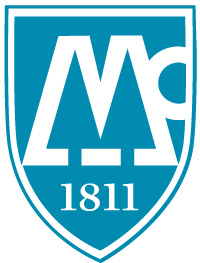 Overruling an earlier Land Court decision, the Massachusetts Supreme Judicial Court ruled that a McLean Hospital residential facility for young men on Bypass Road property does in fact constitute an “educational use” of the property and is therefore not subject to town zoning regulations that would normally apply.
Overruling an earlier Land Court decision, the Massachusetts Supreme Judicial Court ruled that a McLean Hospital residential facility for young men on Bypass Road property does in fact constitute an “educational use” of the property and is therefore not subject to town zoning regulations that would normally apply.
The September 23 decision is the latest chapter in the saga of McLean’s attempt to use the residential property as an expansion of its 3East transitional facility on the Belmont campus. The Bypass Road facility would house 12 boys aged 15–21 with “extreme emotional dysregulation” and give them classroom training in dialectical behavior therapy, teaching them social and emotional skills including mindfulness, emotional regulation, distress tolerance, and behavioral flexibility. Nearby homeowners said the residents posed a possible danger to the community.
The hospital argued — and neighbors disagreed — that the proposed use was primarily educational rather than medical or therapeutic in nature, meaning it qualified for zoning relief under the state’s Dover amendment, which allows exceptions for educational and religious uses of residential property. Appeals and other legal maneuvers followed.
Last year, the Land Court ruled in the town’s favor, saying that “the primary and predominant purpose of the (McLean) program is the treatment of a serious medical condition” — a decision that led to the current appeal.
Timeline of the case:
-
- May 2016: Based on an opinion by town counsel Joel Bard, Daniel Walsh, Lincoln’s building inspector, says McLean Hospital’s proposal for bypass Road qualifies under the Dover amendment’s “educational use” clause and is permitted.
- September 2016: A group of residents with homes near the Bypass Road property appeal the building inspector’s decision to the Lincoln Zoning Board of Appeals. The ZBA holds several public hearings on the matter.
- November 3, 2016: The ZBA rules that the proposed use is not primarily educational and that McLean Hospital’s plans for the property are not allowed.
- November 15, 2016: McLean Hospital sues the town and Walsh in Land Court.
- October 22, 2018: the Land Court rules in the town’s favor, saying, “the primary and predominant purpose of the 3East Boys Program is the treatment of a serious mental condition.”
- December 2018: McLean Hospital appeals the Land Court decision to the Supreme Judicial Court.
- September 23, 2019: The SJC reverses the Land Court ruling, saying the Bypass Road proposal does in fact qualify for zoning relief under the Dover amendment.
“We conclude that, although not a conventional educational curriculum offered to high school or college students, the proposed facility and its skills-based curriculum fall well within the ‘broad and comprehensive’ meaning of ‘educational purposes’ under the Dover Amendment,” the SJC opinion reads.
The court relied heavily on an earlier case involving the town of Weston and Regis College. Regis claimed its plans for Regis East, a 362-unit on-campus retirement village, qualified as an educational facility by virtue of the fact that residents had to enroll in at least two courses per semester. In its 2012 decision, the SJC ruled that any Dover-qualifying use must have an “educationally significant goal that must be the ‘primary or dominant’ purpose for which the land or structures will be used.”
The Weston ZBA had unsuccessfully argued that “the educational aspects of the project were mere ‘window dressing’ for what was in truth a luxury housing development,” according to a review of the case. However, despite its victory, Regis later dropped plans for the complex.
In this week’s McLean ruling, the SJC also noted that the Lincoln Residence, an existing transitional McLean transitional residence for adults in Lincoln at 5 Old Cambridge Turnpike in Lincoln, is a “protected educational facility.” Also, the fact that the Bypass Road facility would have medical staff on site is irrelevant, since public schools also have nurses, the court said.
“Despite the outcome, we are grateful to Special Town Counsel Jay Talerman who, along with Attorney Michael Fee on behalf of the Bypass Road neighborhood, worked to receive a favorable judgment at the Land Court and provide a vigorous and skillful defense before the SJC,” the Board of Selectmen said in a statement.
The board also thanked Special Town Counsel Jay Talerman for providing “a vigorous and skillful defense before the SJC,” and town boards for “their efforts to respond to McLean’s original application in a fair and professional manner.”
The town’s legal expenses in connection with the McLean case total $49,900 thus far. Selectmen will meet in executive session on Friday morning to discuss the decision.
Representatives of McLean Hospital and the Bypass Road residents could not be reached for comment Tuesday.
Leave a Reply